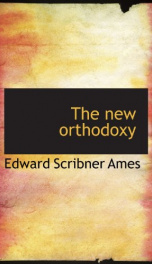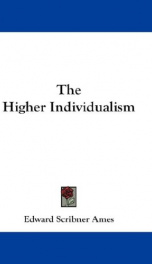the psychology of religious experience

Purchase of this book includes free trial access to www.million-books.com where you can read more than a million books for free. This is an OCR edition with typos. Excerpt from book: CHAPTER VI SPIRITS The omission of the term "spirits" in the discussion thus far has been'deliberate, but a full consideration of the subject is important at this point. Two statements from Tylor's great work may be taken as typical of the usual doctrine. "It seems as though the conception of a human soul, when once attained by man, served as a type or model on which he framed not only his ideas of other souls of lower grade, but also his idea of spiritual beings hi general, from the tiniest elf that sports in the long grass up to the heavenly Creator and Ruler of the world, the Great Spirit." "The general principles of this investigation seem comparatively easy of access to the enquirer, if he will use the two keys which the foregoing studies imply: first, that spiritual beings are modeled by man on his primary conception of his own human soul, and second, that their purpose is to explain nature on the primitive childlike theory that it is truly and throughout 'animated Nature.'" 1 This characteristic expression of the view of most writers upon the subject of animism or spiritism betrays plainly the effect of the old rational psychology. It made the assumption that man is directly conscious of himself as a spiritual agent, or soul, and the further assumption that this "conception of the human soulis the very 'fons et origo' of the conceptions of spirit and deity in general." Professor James and many psychologists after him have shown how unsubstantial a foundation there is for the earlier conception of the soul as a metaphysical unit. In his actual experience each man is, as it were, many selves, sometimes organized into more or less of a hierarchy, but often dissociated, if not quite at war with one another. One never feels the whole of himself, so to speak, but is in r... --This text refers to an alternate Paperback edition.
Info about the book
Author:
Series:
Unknown
ASIN:
B002WTT6IO
Rating:
3/5 (1)Your rating:
0/5
Languge:
English
Users who have this book
Users who want this book
What readers are saying
What do you think? Write your own comment on this book!
write a commentif you like the psychology of religious experience try:
Other books by this author
Do you want to exchange books? It’s EASY!
Get registered and find other users who want to give their favourite books to good hands!




